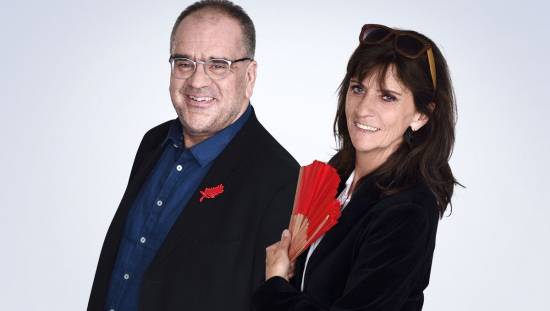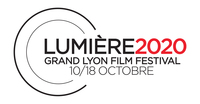3 questions for the 2020 Bernard Chardère Prize recipients
PostED ON OCTOBER 14 AT 6:36 PM
This year, they both received the Bernard Chardère Prize… Christine Masson and Laurent Delmas are co-hosts of the cinema programme, “On aura tout vu” (“We’ll have seen it all”) on France Inter radio.

How would you define your profession?
Christine Masson :
Spreading enthusiasm to others, introducing films that they might not necessarily see in the movie theatre, and act as an intermediary between the public and the creators, asking them the questions that people would like to ask.
Laurent Delmas : I imagine being, as Serge Daney said, a ferryman. Someone who negotiates between an art and its viewer, with this idea of being a lookout in different forms: though interviews, reports and critical analysis, adding that there can only be a passionate ferryman.
What does receiving the Bernard Chardère Prize mean to you?
L. D. : I'm happy, it's a very Lyonnais prize, and Lyon is a city that I really like because it is one of the foundations of French films of my cinephilia, including The Clockmaker of St. Paul (1974), A Lover’s Return by Christian-Jacque (1946) which I discovered through Bertrand Tavernier, and Army of Shadows by Jean-Pierre Melville (1969). So, it’s really not insignificant to get an award here. And then, it is also a recognition of our work on the cinema.
C. M. :
Yes, receiving this award in the city of the birth of the cinema, that's what is important- it's a privilege, and it is also about realizing that, after thirteen years of broadcasts, we put forward well-intentioned and yet critical ideas.
How do you see your profession in the future?
L. D. : It's hard to say, because everything is a bit muddled at the moment,, with the explosion of social networks, which makes it seem like everyone is kind of a critic. We will probably have to wait for a while for this situation to settle down and for us to understand that critical expression is really the fruit of necessary and useful expertise. In the future, we will have to become more audible again.
C. M. :
I'm quite pessimistic about the future of the profession, but if I had to give an optimistic take, I would say that I want cinemas to survive, and I hope that people continue to seek substantiated information, ever deeper words from creators, content that lasts. Our future depends on the resistance of the cinema, on the big screen, and on the curiosity that people have to find out more.
Virginie Apiou

